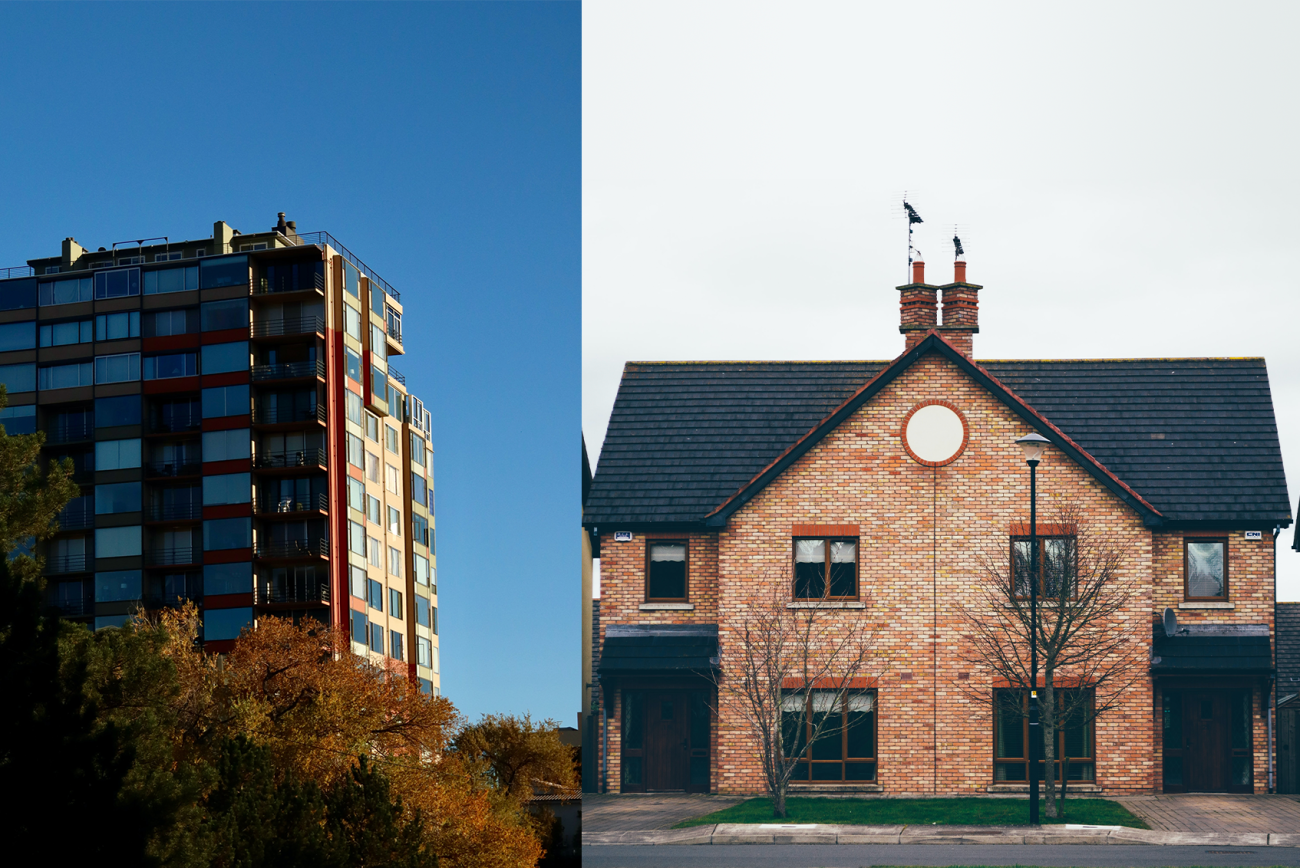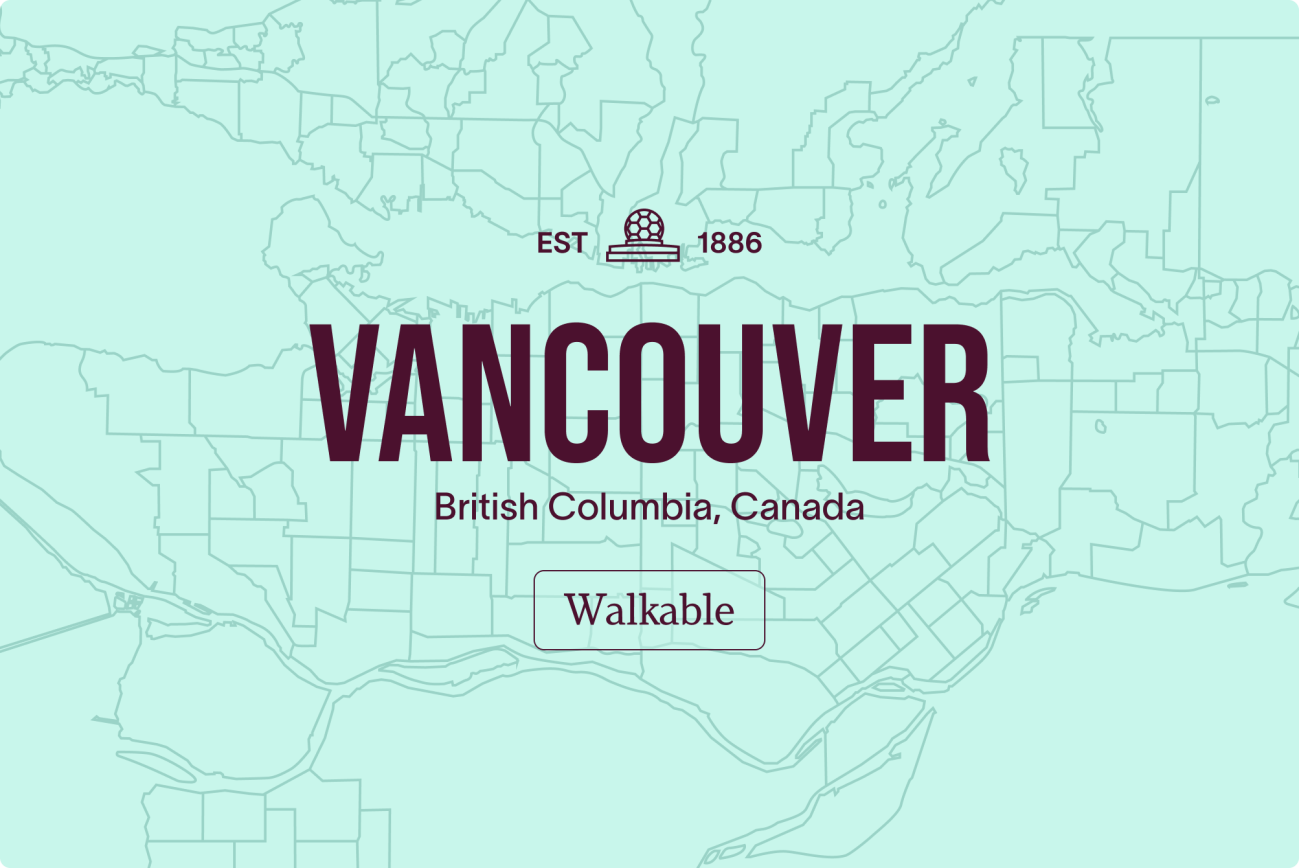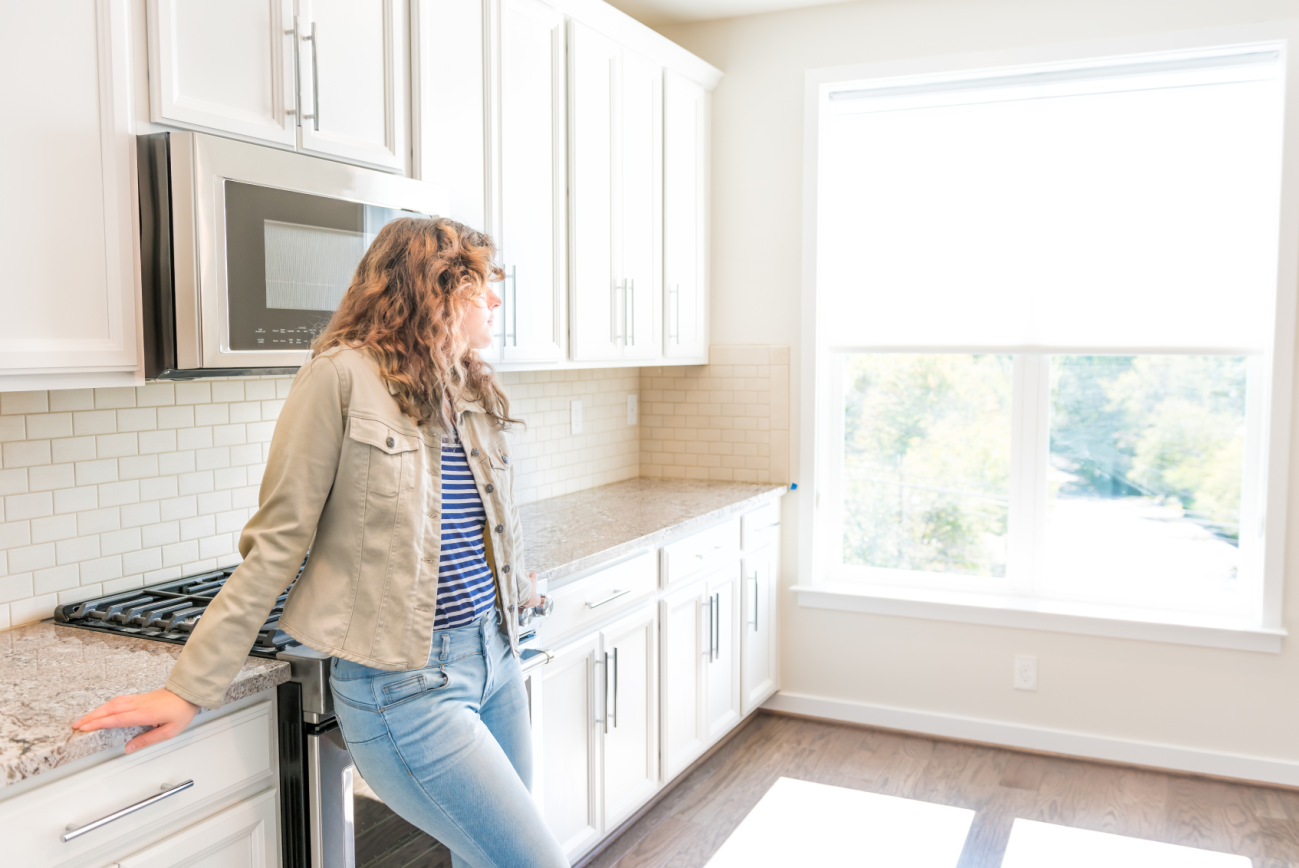Choosing the type of property you want to live in is an major part of your homebuying journey. If buying a house is outside of your price range, or you don’t need a lot of space, a condo or a townhouse could be a great fit.
How are condos and townhouses similar?
- Both are individual units located within a group, community, building, or group of buildings.
- Both are generally more affordable, so condos and townhouses can be a great option for first-time homebuyers as an alternative to a detached, single-family house.
- Both are owned by the resident living in the unit. Other residences like apartment buildings consist of multiple units, owned by one landlord.
- Both can exist in urban, rural, or suburban spaces.
- Both can be multiple stories, or one-story structures.
- Both may have regulations about how many animals can live in each unit or other rules and guidelines regulated by a board or committee.
- Both have shared walls, so it’s important to assess how soundproof the building is to ensure you aren’t constantly hearing your neighbours.
What’s the difference between a condo and a townhouse?
The main differences between townhouses and condos lie in the ownership and financial responsibilities pertaining to each type of residence. Condos are generally more affordable to purchase than townhouses are because you’re buying one unit rather than the land as well.
Ownership
When you purchase a condo, you’re purchasing one unit of the building and your personal home exists within those walls. You also share ownership of the rest of the building with the other unit owners in the building.This includes the structure itself and other common areas like green space, recreation spaces, a shared roof, pool, or gym.
With a townhouse, the ownership is more similar to that of a traditional house. You own the building you’re living in and the land it’s on, even though your structure may share walls with your next-door neighbours. It’s a common misconception that the visual form of a building defines whether it’s a condo or a townhouse; ownership is a key factor in whether the property is, by definition, a townhouse or condo.
Cost
In a general sense, condos are more affordable to purchase than townhouses are because you’re buying one unit rather than the land as well. But condos tend to come with higher mortgage costs and are paired with monthly condo fees that go toward general property maintenance and upgrades. Loans can also be harder to get for a condo than for a townhouse. Ask your agent for documents that outline expected condo fees, condo association dues, and any regulations. You’ll want to know that you can rely on consistent fees, and to understand who decides how money is spent. Other costs like home insurance, home inspection costs, and property taxes can impact comparable costs.
Flexibility
If you secure a loan for your condo, it might be dependent on your occupation of the property, or the condo association may not allow other tenants to rent or occupy your space. This can be true of townhouse associations as well. Consider the resale value of your condo or townhouse; a well-managed condo will maintain appealing grounds and common spaces that can help sell a condo. With a townhouse you’re responsible for the maintenance of the property yourself, which could give you more control over the appearance of the property when you’re trying to sell. If you purchase a condo and the condo fees go up while you’re living there, you may also have more trouble selling the property when you’re ready to leave.
Space
While both dwellings are smaller than the traditional single-family home, townhouses offer more space than condos. Condos may come with parking spaces or on-site gyms, but townhouses are more likely to have other perks like a garage, yard, office space, or extra parking spots. In general, families who can’t afford a detached home can benefit from the lower price of a townhouse without sacrificing the space required to live in a condo.
Upkeep
For people who travel often, don’t want to shovel the driveway, or often forget to take out the trash, condos can offer a favourable lifestyle. Condo fees cover maintenance of the common grounds, waste disposal, pool cleaning, and other benefits. But for those who enjoy having their own garden space or want control over landscaping decisions and other administrative duties, townhouses mean that your property is your responsibility.
If you’re purchasing a condo, you’ll also want to get a sense of the building culture, since you could be responsible for damage costs and repair costs caused by another owner in shared spaces.
Governance
Condos and townhouses can both come with rules and regulations that buyers agree to when purchasing the property. Townhouses often come with agreements and may be governed by a set of guidelines that buyers agree to. These guidelines might regulate the visual appearance of the home; so that one townhouse or condo owner can’t suddenly paint their unit in a colour that clashes with the other units. They can also include easement rights, which limit or restrict construction or external modifications to the townhouses. Condos often have condo associations that oversee or regulate condo fees and regulations.
What’s the difference between a row house and a townhouse?
Row houses and townhouses have many similarities, and both are generally smaller than single-family homes. Row houses are traditionally side-by-side in a row, and are built to be more compact residences than townhouses are. Row houses are less likely to have extra yard space or a garage, and are often constructed in urban areas with immediate access to shops and businesses. Some row houses also don’t have shared walls, and most townhouses share walls with neighbouring buildings.
There are multiple variations from the typical townhouse and condo residences
Some townhouses exist in communities where membership fees are required, and the model works in a similar way to that of a condo. These “condo townhouses” may exist in planned townhouse developments, where a board of directors governs decisions and the occupants may vote on decisions that affect the whole development. In this case, the ownership may still cover the home and the land, but fees go toward shared green space commonly enjoyed by everyone in the community of townhouses, or maintain a common visual theme adopted by all the homes in the development.
Houseful can help you find and choose a condo or townhouse
Houseful helps you navigate the complex homebuying and selling process with a tailored home search experience, professional support, and resources to inform your decisions.
Start your home journey
Find more information on how to buy a home, how to sell your home, and mortgage and finance tips, see our Home Journey How-To’s or sign up at houseful.ca.




